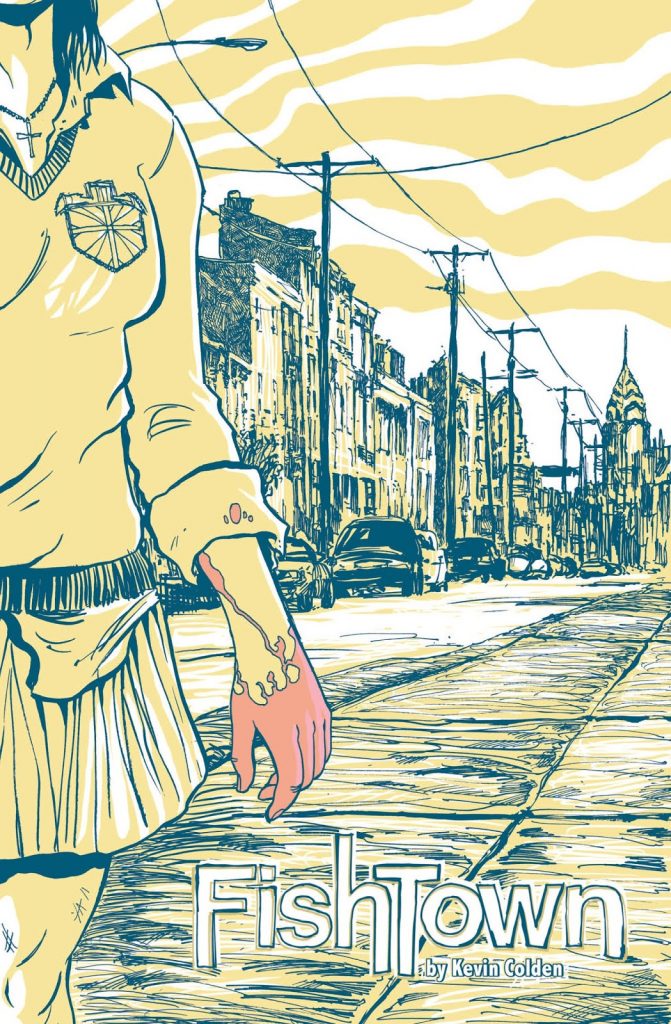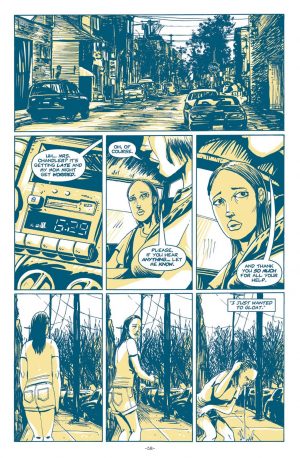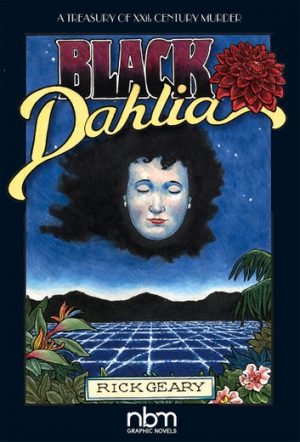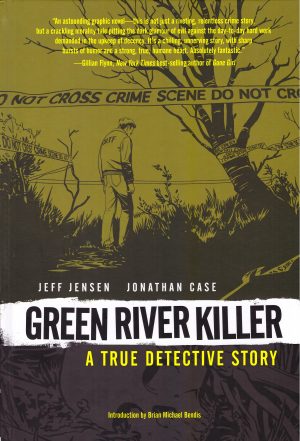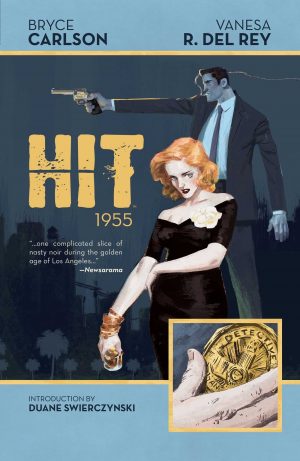Review by Karl Verhoven
Fishtown is named after the area in which it’s set, a run down residential neighbourhood slightly north of Philadelphia’s centre. Pages of assorted teenagers and their activities are interspersed with pages of those same teenagers being interviewed, talking about their lives and conditions, although the circumstances of the interviews aren’t immediately clarified. It’s a cleverly written opening, deliberately contradictory on Kevin Colden’s part, as a bravado is maintained during the interviews while the other sequences show the truth. At the end of the first chapter Colden drops his bombshell, revealing that the police are the interviewers, and why that is.
Five teens are involved, all but one of them with difficult home lives, some with secrets they’ve kept from the others, but revealed to the police. Colden initially develops some sympathy for Angelica, the sole woman in a feature role, a lost soul with mental problems earlier in her life that have never been resolved. He makes an explicit connection between the medication she was given in state care and her current drug addiction, but having instilled that sympathy Colden sets about dismantling it. That’s one of several personality dissections. Colden’s examining a horrific act, and underlines the casual attitudes toward it throughout, the distancing, the lack of afterthought, and the seeming lack of concern disturb because they’re presented as ordinary. When the actual crime is presented, however, it’s distressingly detailed, occupying several pages and at a stroke removing any residual disposition to understand how the cast’s dissatisfaction could lead to that. “All I did was hit him with a rock”, one cast member offers as mitigation. There’s no remorse, just shrugged shoulders.
His versions of the perpetrators each lack something in their lives, yet the way they’re drawn is occasionally haunting, but overall Colden presents them with their inner monsters well concealed until the end. The matter of fact way he draws everything serves events well, never glamorising and showing backgrounds without overly inducing a sense of pity. The cast all have problems, but with one exception all contribute to the way they’re perceived. The exception is Justin, whose home life is comfortable and not beset with issues. He’s depicted as resolutely ordinary in every respect, making his participation the most shocking.
Fishtown is a tragedy, and in presenting it Colden was influenced by the Ralph Waldo Emerson quote that “fiction reveals truth that reality obscures”. That was memorably applied by Truman Capote for In Cold Blood, and the discovery that Colden based Fishtown on real events adds a memorably disturbing afterthought to an already upsetting read. It was produced with aid of a Xeric foundation grant, and we should all be grateful.
